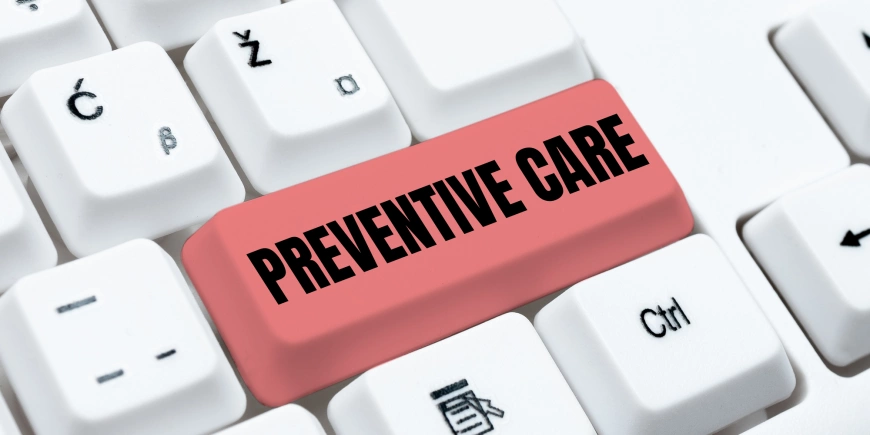How I Know Preventive Health Care Works

Many of us have pets. My dogs receive a preventive medication each month for heartworms. This is easy and it prevents bigger problems later (at great expense financially and physically for the dog). I am here to explain how that same preventative attitude can help you and your health, especially if you are on Medicare.
There is an annual primary care visit paid for by Medicare (no co-pay). if you have Medicare Advantage coverage you probably have some dental, vision, and hearing coverage as well. Original Medicare will cover medical issues of your mouth, eyes, and ears but it does not cover everything. Does that mean you should not have these areas checked routinely? NO!
I know someone that went blind because they did not know they had glaucoma, they always had «good vision so never went to the eye doctor».
Be sure to see your primary care physician annually, review your medications, and bring a list of your issues no matter how small. Your physician can refer you to specialists but can usually handle the basics and start monitoring before something becomes serious.
The Medicare and You book has pages of prevention tests covered by Medicare, your doctor can determine what is right for you.
As a patient advocate, I often hear after the fact of tragic situations that could have been avoided if some prevention was done. Be sure you know what your health insurance coverage includes.
An annual eye exam can find health issues you did not know about like diabetes, diagnose glaucoma before you lose vision, and determine when it is time to have that cataract surgery. Vision issues are the number one reason for falls, and falls can lead to many other issues, including life-altering events like head injury. I know someone that went blind because they did not know they had glaucoma, they always had «good vision so never went to the eye doctor». That is life-altering to go blind in your 70s. The gradual loss of vision impacts your quality of life, you start driving less and being less active because you seem off your game when in unfamiliar places.
I know several people that ignored a sore tooth for several months and had to have heart-valve surgery, which was life-altering and risky in many other ways.
Dental exams and cleanings, keep your mouth and teeth in good shape. An infection in a tooth can lead to open heart surgery and you do not always have severe pain with a bad tooth. You do not have to have expensive dental work performed, but keeping tabs on a cracked tooth can prevent major issues later. I know several people that ignored a sore tooth for several months and had to have heart-valve surgery, which was life-altering and risky in many other ways.
Keep your feet in good shape and mention to your doctor if you have numbness or issues with your feet. know several people that ignored a sore tooth for several months and had to have heart-valve surgery, which was life-altering and risky in many other ways. They were moved to an Assisted Living Facility and had 4 weeks of expensive PT before I was involved and asked «Can I look at your feet?» then we found the problem with their balance. Dementia played a factor in this case but still! I won't mention the fall issue again, but I think you get the picture of how foot issues can lead to falls.
I know several people that ignored a sore tooth for several months and had to have heart-valve surgery, which was life-altering and risky in many other ways.
You can usually get a hearing test for free at offices that sell hearing aids. When you visit your primary care, have them look in there with a scope. Debris builds up in your ears from hair, shampoo, and environmental dust. I had a client that was getting dizzy periodically, before I was involved they prescribed medication for this. I asked the primary care to look and possibly clear the ears, the physician did not think anything of it, but did see debris so cleared the ears and WOW, there was quite a bit in there. Suddenly the client could hear way better than before and the physician said afterward, «yeah, that amount of debris could cause dizziness». So you never know, one less medication and its associated side-effects, no need to pay for the prescription, and better hearing!
Preventive care is not fun and you might have to pay out of pocket, but it can catch issues early, which leads to better results rather than waiting for a serious condition to knock you out.
